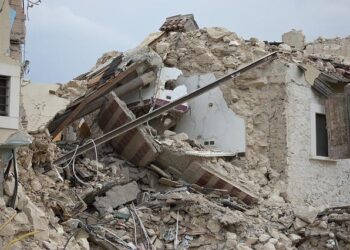The Council of Europe’s MONEYVAL committee has released its latest progress reports evaluating North Macedonia and Romania’s efforts to combat money laundering and terrorist financing. These assessments provide a detailed overview of the legislative, institutional, and operational measures implemented by both countries to align with international anti-money laundering (AML) and counter-terrorist financing (CTF) standards. As global threats evolve, MONEYVAL’s findings highlight the ongoing challenges and advancements in strengthening financial integrity within the region, offering crucial insights into how North Macedonia and Romania are addressing vulnerabilities in their financial systems.
Money Laundering and Terrorist Financing Risks in North Macedonia and Romania Exposed by MONEYVAL
The latest MONEYVAL progress reports shed critical light on the evolving landscape of money laundering and terrorist financing risks within North Macedonia and Romania. Both countries have made commendable strides in enhancing their regulatory frameworks and operational capacities, yet significant vulnerabilities remain. North Macedonia, in particular, continues to grapple with challenges related to the supervision of non-financial businesses and professions, which are often exploited for money laundering activities. Romania’s banking sector shows improved resilience, but gaps in beneficial ownership transparency and cross-border cooperation underline persistent threats. These insights emphasize the urgent need for sustained commitment to international compliance standards.
Key findings from the reports include:
- The necessity for heightened vigilance regarding politically exposed persons (PEPs) and complex corporate structures.
- Strengthening the implementation of risk-based approaches across all sectors.
- Enhanced training and resources for financial intelligence units (FIUs) to tackle increasingly sophisticated financial crimes.
- Improved mechanisms for international information sharing to disrupt transnational networks.
| Country | Primary Risk Area | Status of Compliance | Recommendations |
|---|---|---|---|
| North Macedonia | Non-financial supervision | Partial | Expand oversight and enhance training |
| Romania | Beneficial ownership transparency | Moderate | Improve registry and cross-border data exchange |
Detailed Assessment of Regulatory Gaps and Enforcement Challenges in Both Countries
Both North Macedonia and Romania face significant challenges in closing regulatory gaps that hinder the full effectiveness of their anti-money laundering (AML) and counter-terrorist financing (CTF) frameworks. In North Macedonia, weaknesses persist in the supervision of non-financial entities and professions, such as casinos and real estate agents, which remain underregulated and susceptible to exploitation by illicit actors. Romania, meanwhile, continues to grapple with fragmented inter-agency coordination and delayed implementation of risk-based supervision, impairing timely identification and disruption of complex laundering schemes. The MONEYVAL reports highlight that both countries must enhance due diligence measures and expand the scope of entities covered under their AML/CTF laws to match evolving methods used by money launderers and terrorists.
Enforcement difficulties stem from limited resources, insufficient training, and the occasional lack of political will to proceed against high-profile cases. The reports underscore critical issues including:
- Inconsistent application of sanctions and penalties across regional authorities.
- Delays in asset freezing and confiscation proceedings.
- Inadequate exchange of financial intelligence between law enforcement and supervisory bodies.
- Low number of prosecutions despite numerous investigations.
| Challenge Area | North Macedonia | Romania | ||||||||||||||||||||
|---|---|---|---|---|---|---|---|---|---|---|---|---|---|---|---|---|---|---|---|---|---|---|
| Supervision Coverage | Partial coverage, gaps in non-financial sectors | Broad but uneven scope | ||||||||||||||||||||
| Enforcement Efficiency | Limited prosecutions, resource constraints | Delayed asset recovery, coordination issues | ||||||||||||||||||||
If you want, I can help you extend this further, add more rows based on other challenge areas, or help with styling improvements! Just let me know. Key Recommendations from the Council of Europe to Strengthen Anti-Money Laundering FrameworksThe Council of Europe emphasizes a multi-layered approach to fortify anti-money laundering (AML) systems, urging authorities to enhance cross-border cooperation and information exchange. Strengthening the legal framework remains paramount, with calls to close existing loopholes and align national laws with international standards. Special attention is directed towards improving the transparency of beneficial ownership information, ensuring that true owners of companies and trusts are readily identifiable by competent authorities. Key steps recommended include:
|
















